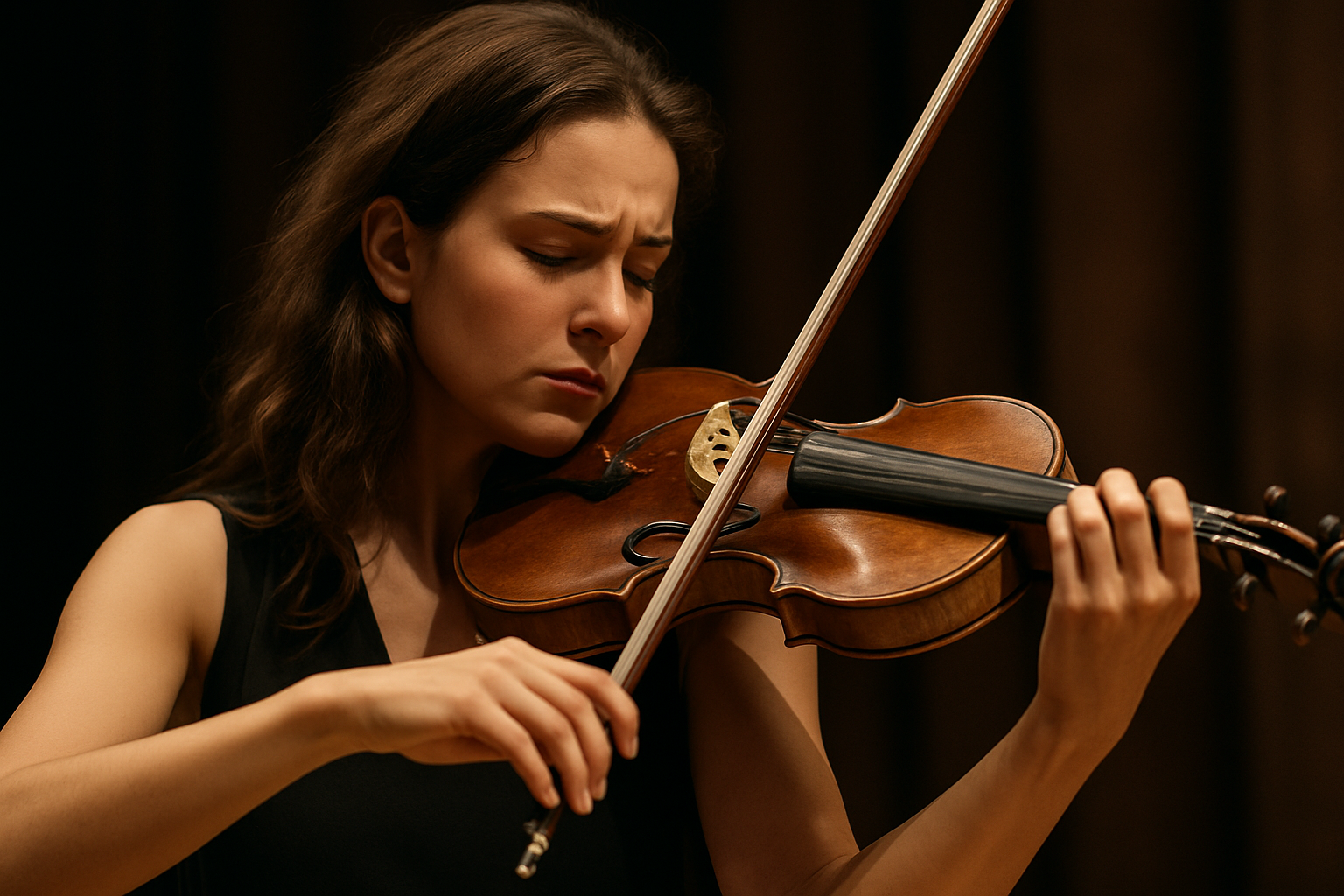When beginners first start learning music, much of the focus is on accuracy: playing the right notes, keeping time, and following the written score. These are important foundations, but music is more than just reproducing symbols on a page. The true magic happens when musicians add their own interpretation. Personal interpretation is what transforms music from a mechanical sequence of sounds into a living, breathing art form.
Personal interpretation means shaping music with your unique voice, emotions, and perspective. It involves decisions about dynamics, phrasing, articulation, tempo, and tone. Two musicians can play the same piece correctly, but their performances may sound completely different because of their interpretations. This individuality is what makes music endlessly diverse and meaningful.
Why Personal Interpretation Matters
Brings Music to Life
Without interpretation, music risks sounding flat or robotic. Interpretation injects emotion and personality into every note.
Connects With Audiences
Listeners often connect more deeply with performances that feel authentic and personal. Your interpretation can move people in ways that technical perfection alone cannot.
Encourages Self-Expression
Music becomes a tool for expressing who you are. Even as a beginner, you can communicate your feelings through sound.
Builds Artistic Identity
Over time, your interpretative choices form your unique style as a musician. This individuality is what sets you apart.
Factors That Shape Interpretation
Emotions and Mood
How you feel influences how you play. A joyful mood might inspire a brighter tone, while sadness may result in slower, more tender phrasing.
Cultural Background
Your cultural experiences shape how you hear and express music. A folk musician might interpret rhythms differently than a classically trained one.
Personal Experiences
Life experiences influence how you relate to certain pieces. A song about longing might resonate more deeply if you’ve experienced separation or loss.
Historical Context
Interpreting music also involves understanding its time and style. Playing Bach requires different choices than playing jazz, but both leave room for individuality.
Balancing Fidelity and Freedom
Some beginners worry that personal interpretation means ignoring the composer’s intentions. In reality, good interpretation is a balance. Respect the written score—dynamics, tempo, and phrasing are guides—but also bring your own voice. Even great composers expected performers to add personal touches. For example, Baroque musicians were often encouraged to ornament pieces freely.
How Beginners Can Start Developing Interpretation
Listen Actively
Study multiple recordings of the same piece. Notice how different musicians make contrasting choices.
Experiment With Dynamics
Play the same phrase softly, then loudly, then with a gradual crescendo. Notice how emotion changes.
Adjust Tempo
Try slightly slower or faster tempos and see which feels most natural or expressive.
Vary Articulation
Play a melody legato (smooth) and then staccato (short and detached). Interpretation often lies in these details.
Imagine a Story
Many musicians find it helpful to imagine a scene, character, or emotion behind the music. This visualization guides expression.
Practical Exercises for Interpretation
- Choose a short melody and play it in three different emotional styles, such as joyful, sad, and dramatic.
- Record yourself playing with different dynamics and articulations, then compare which feels most expressive.
- Play a piece exactly as written, then play it again with your own variations in phrasing and tempo.
- Ask a friend or teacher how your interpretation makes them feel, then reflect on whether it matches your intention.
- Write a short paragraph describing what a piece means to you, then try to reflect that meaning in your performance.
Interpretation Across Different Genres
- Classical: Interpretation often involves subtle shaping of phrases, rubato (flexible timing), and tone color.
- Jazz: Musicians interpret through improvisation, re-harmonization, and personal phrasing.
- Pop: Singers and instrumentalists add personal inflection, timing, and emotion to lyrics and melodies.
- Folk and World Music: Interpretation may involve adding regional ornamentation or expressive storytelling.
No matter the genre, interpretation is the bridge between notes and meaning.
The Role of Teachers in Fostering Interpretation
Teachers can encourage beginners to move beyond accuracy by asking reflective questions:
- How do you want this passage to feel?
- What emotion are you trying to communicate?
- Can you try playing it in two different ways?
Good teaching helps students develop confidence in their interpretative choices instead of fearing mistakes.
The Psychological Side of Interpretation
Builds Confidence
Making interpretative decisions teaches you to trust your instincts.
Encourages Creativity
Interpretation transforms practice into an artistic act, not just technical repetition.
Reduces Anxiety
Performing feels less stressful when you see it as sharing your perspective rather than aiming for perfection.
Inspirational Examples of Interpretation
- Glenn Gould’s recordings of Bach remain famous for their unique tempos and phrasing, showing how interpretation can redefine classics.
- Jazz legends like Miles Davis built entire careers on personal interpretation, turning familiar standards into fresh, emotional experiences.
- Singers such as Ella Fitzgerald or Adele captivate audiences not just with technical skill but with deeply personal delivery.
These examples remind us that interpretation is what transforms notes into music that lives.
Long-Term Benefits of Developing Interpretation
- Creates more engaging performances.
- Helps build a distinctive artistic voice.
- Deepens emotional connection to music.
- Strengthens creativity and confidence.
- Makes practice more enjoyable and meaningful.
Final Thoughts: Your Voice in Music
Music is a universal language, but interpretation is what makes it personal. While accuracy and technique provide the foundation, your interpretation gives music its soul. Every beginner, no matter how simple the piece, can start developing this skill.
The next time you practice, don’t just ask, “Am I playing the right notes?” Ask, “What am I trying to say?” By cultivating your personal interpretation, you won’t just be playing music—you’ll be communicating your own voice through sound.
